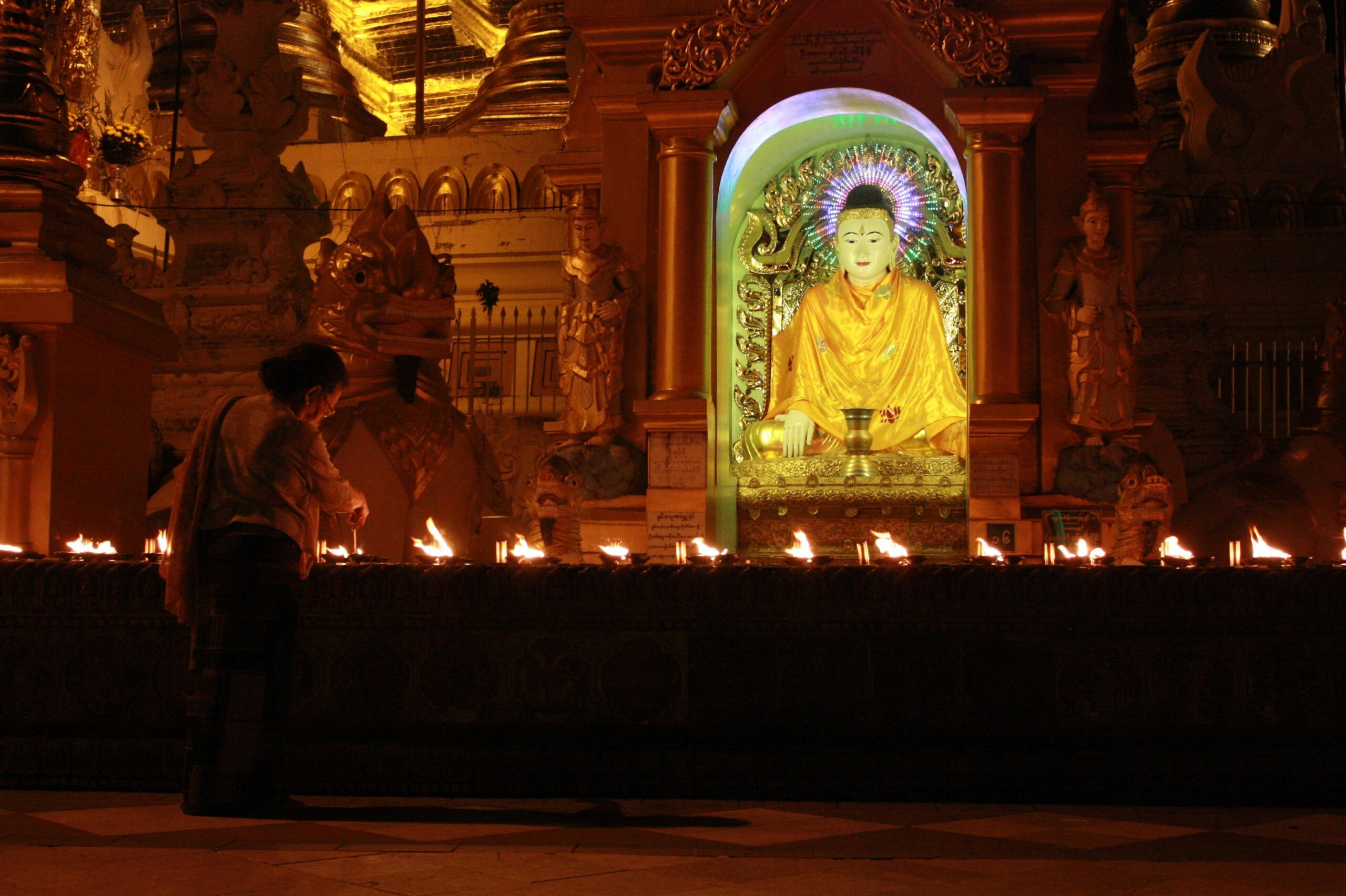What is Being Well?
Buddhism and the Twelve Steps of Alcoholics Anonymous share a compelling common ground in their approach to overcoming the pervasive issue of self-centredness. While the terminology and specific practices may differ, both traditions emphasise the profound importance of shifting the focus from oneself to others as a crucial step in the journey towards recovery and enlightenment.
By recognising the detrimental effects of self-centred behaviour and adopting practices that promote selflessness and compassion, individuals can achieve a deeper sense of fulfilment and purpose. This transformation is not only beneficial for personal growth but also enhances the well-being of the community as a whole.

Photo by Nicola Abrescia on Unsplash
Ultimately, the teachings of Buddha and the principles of AA converge on the idea that true happiness and sobriety are attained through the cultivation of empathy, service, and a genuine concern for the welfare of others. In this way, both paths offer a timeless and universal message that transcends cultural and temporal boundaries, providing valuable insights for anyone seeking a life of greater meaning and connection.
Similarities
The AA Big Book notes that at the heart of our issue lies selfishness, a rampant self-will, and an obsession with self. In this regard, Buddha’s teachings align closely with Bill Wilson’s views.
To achieve and maintain sobriety, we need to focus on helping others and move away from self-centredness.
While self-focus causes many problems, it’s opposite—cherishing others—is seen as the key solution.
In Geshe Kelsang Gyatso’s “New Eight Steps to Happiness,” he provides a road map for all beings to overcome dissatisfaction. It’s clear that addicts are not the only ones suffering, and this is not a new issue.
Suffering
Throughout history, we have all faced life’s challenges—birth, death, sickness, ageing, separation from loved ones, dealing with adversaries, and unfulfilled desires.
It’s not my place to speculate on other factors contributing to addiction, but things like epigenetics, family trauma, and societal pressures certainly play roles.
Since 2008, I have found great success using the 8 Steps To Happiness alongside the other 12 Steps for continuous sobriety and relative happiness. Before that, I struggled for about 1000 days just to achieve 50 consecutive days of sobriety. It felt like being caught in a freight train of despair!
The core message from both Gyatso and AA is that we need to practice a shift from self-focus to focusing on others to create meaningful change. This idea opposes modern trends like Stoicism, social media scrolling, self-promotion, and image maintenance.
One could argue that excessive self-concern underpins many of today’s issues—political, environmental, societal, and familial.
Common Prayer
In his opening passage, Geshe directs us to the “ultimate, supreme goal.” There’s a common prayer among suffering alcoholics: “God save me!” The 12-Steps model begins with admitting our powerlessness and believing that a Higher Power can and will help if we seek it.
Reorienting our lives to focus on others instead of ourselves is a great starting point. It’s not easy, but it is simple.
Buddha, in his unique way, makes it straightforward: Meditate.
Turning your life around can seem daunting, but the process starts with simple “inaction.” Just sit, close your eyes, and think of others.
“The New Eight Steps to Happiness” is an easy read and even easier to follow. It consists of eight stanzas, each just a few lines long. We’re instructed to read the entire sutra first, then focus our mind on one stanza at a time during meditation.
I have found this to be a lifelong exercise.

Photo by Julie Ricard on Unsplash
The Journey
Enlightenment might take many lifetimes of focus and practice, but the journey of a thousand miles begins with a single step. Langri Tangpa, the original author of this ancient text, gives us that first step, and it’s beautifully simple: Meditate on cherishing others.
The main cause of enlightenment is Bodhichitta, and the root of Bodhichitta is compassion.
Since developing compassion depends on cherishing others, the first step to sublime happiness or enlightenment is learning to cherish others.
In AA, we have many chances to show compassion. Newcomers are often assigned the role of greeter at meetings. There are also tasks like tea-towel duties, setting up chairs, and leading meetings to help other sufferers. All of this is basic Buddhism.
Service work in the wider community is encouraged, and before long, the once selfish alcoholic transforms into a powerhouse of compassion.
Buddha, Dharma, Sangha
Similarly, if we join a local Sangha, there are plenty of service roles for everyone.
Remember, a core premise of Buddhist philosophy is that we all possess Buddha-nature. This teaching is for all sentient beings, but it’s especially helpful for an addict in deep despair. Turning our lives around—from being driven by rampant desires and addictions to a life free from suffering—begins with shifting our focus.
Looking to others and what we can offer our community is the way forward for alcoholics, other addicts, and all sentient beings.
If this advice works for you, let me know, and I’ll try it myself.

Leave a Reply